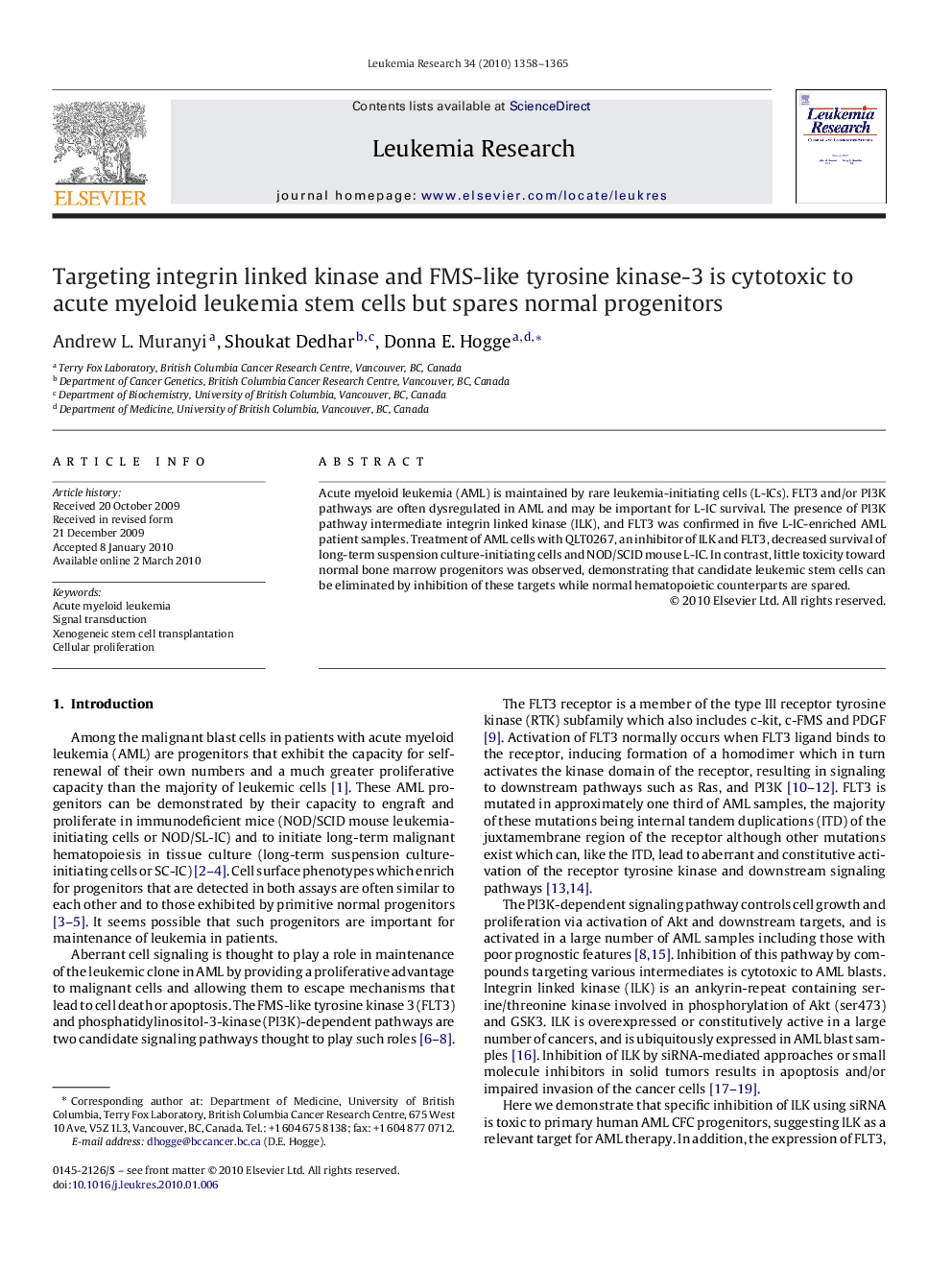| Article ID | Journal | Published Year | Pages | File Type |
|---|---|---|---|---|
| 2138282 | Leukemia Research | 2010 | 8 Pages |
Abstract
Acute myeloid leukemia (AML) is maintained by rare leukemia-initiating cells (L-ICs). FLT3 and/or PI3K pathways are often dysregulated in AML and may be important for L-IC survival. The presence of PI3K pathway intermediate integrin linked kinase (ILK), and FLT3 was confirmed in five L-IC-enriched AML patient samples. Treatment of AML cells with QLT0267, an inhibitor of ILK and FLT3, decreased survival of long-term suspension culture-initiating cells and NOD/SCID mouse L-IC. In contrast, little toxicity toward normal bone marrow progenitors was observed, demonstrating that candidate leukemic stem cells can be eliminated by inhibition of these targets while normal hematopoietic counterparts are spared.
Related Topics
Life Sciences
Biochemistry, Genetics and Molecular Biology
Cancer Research
Authors
Andrew L. Muranyi, Shoukat Dedhar, Donna E. Hogge,
